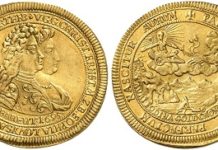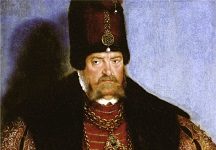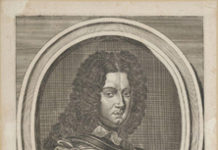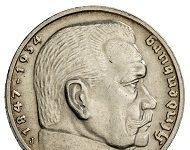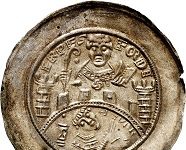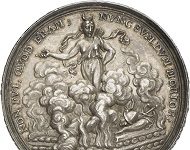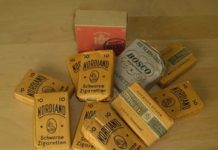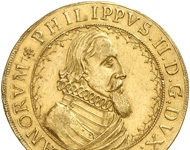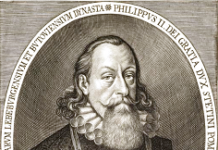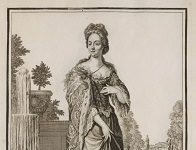Gold from Goldkronach
For centuries the mines of Goldkronach were extremely profitable. But then their abundance ebbed away. The Bavarian Kings were not willing to accept that and planned huge investments. A coin will tell you, what happened then.
Joachim II and his Jewish court factor
On February 1, 2017 the auction house Künker offers the top items from the Gunther Hahn Collection “Brandenburg-Preussen” as part of its Berlin Auction. They include some extremely rare coins of Joachim II who relied on Lipman ben Juda to conduct his financial transactions.
Charles, Landgrave of Hesse: Creator of the Military Power of Hesse
An extremely rare double ducat made of Eder-gold will be sold at Kunker’s on October 30, 2012. It reminds us of how poor of natural resources this region once had been. Hence, Charles created a resource of his own: his army.
Human faces, part 49: Hindenburg
Why was the human head the motif on coins for centuries, no, for millennia? And why did that change in the last 200 years? This episode looks at the late years of a famous military leader: Paul von Hindenburg.
The Coins of Medieval Mainz
On 21 March 2018 auction house Künker will auction off the Dr. Michael and Dr. Adelheid Loos collection of coins and medals from Mainz. This presents a great opportunity to tell the story of the city in medieval times based on the coins.
The age of alchemy
The wonders of alchemy enthralled the smartest men of early modern times. An impressive testimony to his passion is a silver medal, which will be auctioned off at the upcoming Künker Fall Auction on September 28, 2016.
A relic from Germany’s post-war era: a hoard of cigarette boxes
Time and again the happiness has been described a collector experiences when at a coin fair he finds the one, the small and seemingly insignificant object ...
Two Dukes in Pomerania
On January 31, 2013, a Pomerania collection will be coming up for auction at Künkers’. Here, we present two coins from the collection that are as different as the men who had them minted.
Philip II of Pomerania and his coin dealer Philipp Hainhofer
Around 1600, coin collecting was “the” leisure activity of the intellectual elite. The emperor himself was an avid collector. He was imitated by many noblemen among them Philip II of Pomerania, who put together a great art collection in cooperation with Philipp Hainhofer.
The sad fate of Wilhelmine Amalia
Recte et constanter – uprightly and firmly, this is the motto under which empress Wilhelmine Amalia had taken up the reign. And uprightly and firmly did she act after her husband’s death as well. That is what is presented on an impressive medal offered at Künker.



